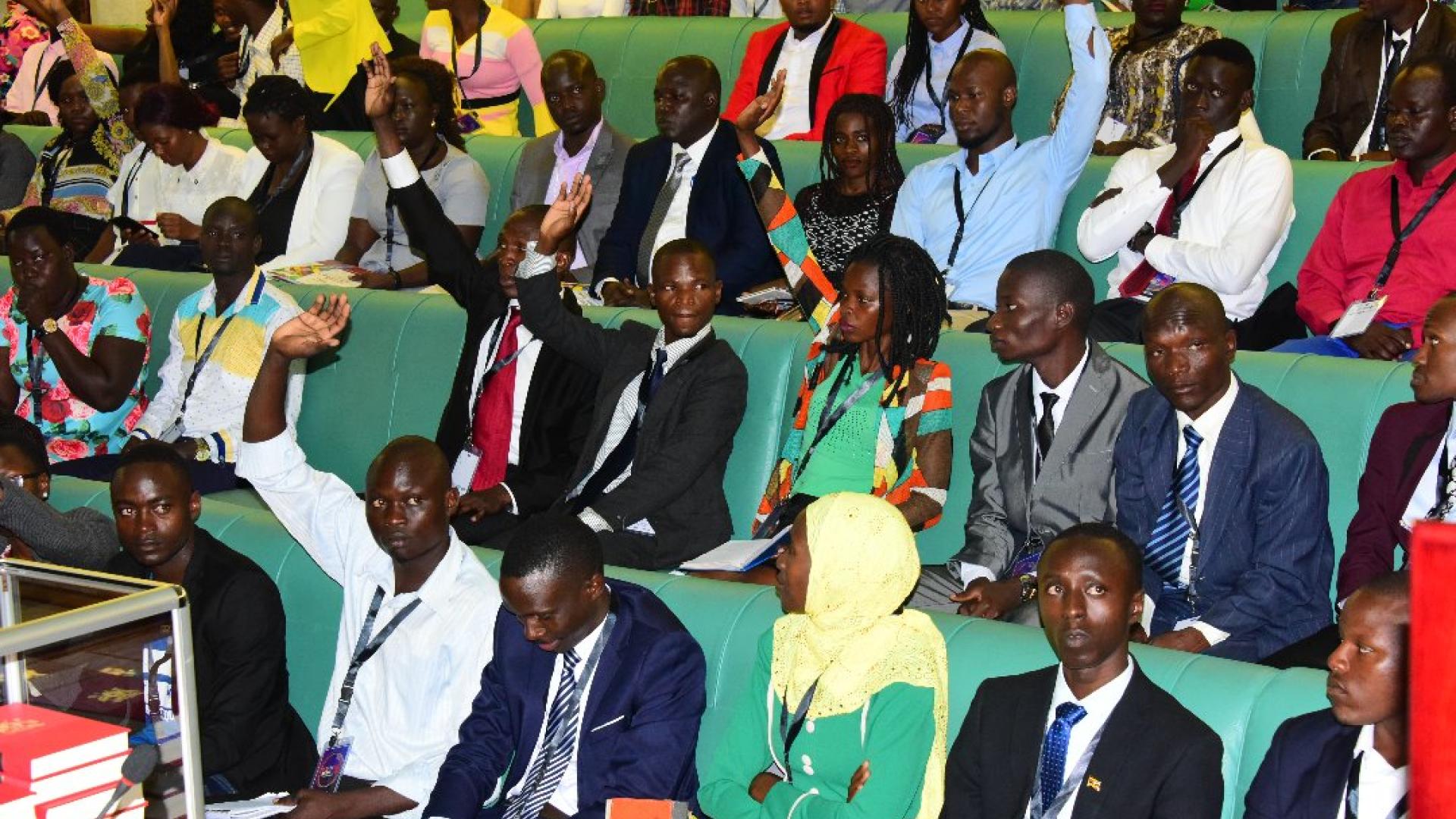Young leaders in Africa taking the lead in paving the way for accountable politics in the continent


Zoe Clack, WFD Programme Officer in Africa
Through an intensive training and mentorship programme called Women and Youth in Democracy (WYDE): Civic Engagement, young leaders are receiving professional development training to design and deliver their own accountability toolkit. Participants will be supported to develop their own pilot activity aimed at improving accountability and transparency within sub-Saharan Africa with the strongest applications receiving seed funding to bring their vision to life. Within the WYDE Civic Engagement programme, WFD is working in close partnership with the French National Assembly to provide training on financial accountability to young leaders from across Francophone and Anglophone African countries.
Why financial accountability? We know that politics, influence, and power are deeply linked with money. Our programme is designed to demystify regulatory and budgetary processes and provide insights into the different tools and methods of examining, reviewing, and holding governments to account for their financial practices.
Nakabira Nashiba is a Senior Programmes Specialist at the African Youth Development Link, Youth Coalition for Electoral Democracy Coordinator, and is active in the field of governance, youth participation, and peacebuilding in Uganda. She told us that,
“Through the WYDE program, I came to appreciate that some of the contextual issues are similar across Africa, for example in terms of limited checks and balances among the government institutions, apathy among the youth, weak laws, shrinking civic space, hurdles in the electoral processes, and so forth.”
Similarly, Daisi Omokungbe a young leader with a background in youth engagement, public project tracking and evaluation, and using evidence-based strategies to bridge the gaps between citizens, community, and the government in Nigeria said,
“To a large extent, factors preventing politics from being accountable and inclusive are a mixture of cases of poor implementation, monitoring, accountability, and transparency practices. On the other hand, citizens who are supposed to demand inclusion, accountability, and transparency are doing little to hold duty-bearers responsible.”
WFD is working with a diverse range of partners to offer a rich and varied look at the tools and methods available such as how post-legislative scrutiny and audits are conducted. Our partnership with the French National Assembly has offered a unique opportunity for our Francophone cohort to hear directly from a democratic parliament on how it approaches critical review processes.
With the first cohort halfway through the WYDE Civic Engagement programme, topics such as the auditing process, post-legislative scrutiny (PLS), and the budget cycle have been covered. Next on the agenda we will be discussing public debt management, gender-responsive budgeting, and the true cost of politics.
Nakabira from Uganda added,
“The WYDE program has broadened my understanding of the different aspects of governance such as political accountability, financial accountability, and building coalitions. Through this program, I have come to appreciate that no matter the structural challenges in Uganda, we still have a role to play as young people, in line with contributing to improving the civic competence of the people and having more accountable and responsive leaders and institutions respectively.”
Through this programme, the young leaders have connected with a diverse set of guest speakers. However, it is their relationships with one another that holds the strongest potential. Raymundo is the founder of the Malawian National Youth in Politics, a civil organisation that prepares young Malawian leaders for front-line politics. Through his organisation, he has been actively involved in creating platforms for young people to engage in political activities. Raymundo believes, “Networking is a good strategy when you want to embark on a project. You can't carry the weight of the world alone.”
The WYDE Civic Engagement programme identifies that economic and educational barriers to youth participation are exacerbated by a lack of information and knowledge about democratic processes. This is in addition to accountability and ways of becoming active citizens, as well as disillusionment with formal political structures being common among young people. The programme combines activities of awareness raising and capacity building. The aim is to ensure young people are better informed and capacitated on how to engage in monitoring institutions and democratic processes, including domestic election observation.
With an eye towards the future, Daisi seems positive that,
“If we have citizens that follow up with budget preparation, implementation, and monitoring of public projects, programmes, and policies to demand inclusion, accountability, and transparency – then we will be able to shift the gear of inclusivity and accountability forward in our politics and governance.”
The WYDE Civic Engagement programme is funded by the European Commission and delivered through the European Partnership for Democracy (EPD).